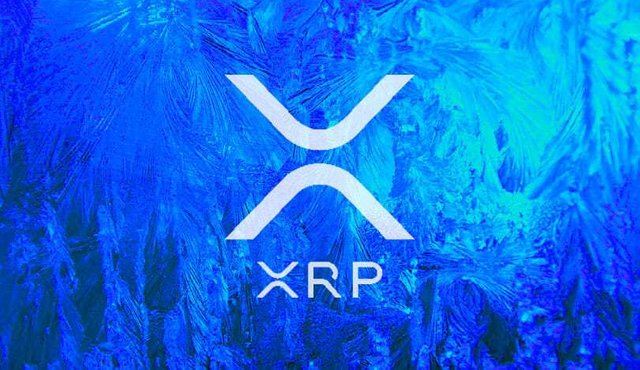
JP Morgan Chase, the largest bank in the United States by a long shot, shocked the financial community on Thursday by launching its own blockchain product. For the purpose of this article, JPM Coin will not be referred to as a “cryptocurrency.” JPM CEO Jamie Dimon is a frequent target of derision in the crypto community, owing to his outspoken negativity as regards Bitcoin and the wider crypto markets.
Dimon has frequently said that while he’s not a fan of Bitcoin, he believes the blockchain can be a boon to finance. Despite his years-long tirades, JP Morgan has been in the crypto space for years, reportedly handling Bitcoin trades while Dimon goes on television to decry Bitcoin a “fraud.”
JPM COIN HIGHLIGHTS DEFINITION OF “CRYPTOCURRENCY”

“Cryptocurrency” has many definitions in the world.
Everipedia defines it as “a digital asset designed to work as a medium of exchange using cryptography to secure the transactions, to control the creation of additional units, and to verify the transfer of assets.” Notice, nothing mentioned in the base definition about mining. Tokens, apparently even tokens with reversible transactions, can allegedly be cryptocurrencies.
But perhaps this definition doesn’t do justice to the nature and spirit of cryptocurrency. Let’s look at the properties of Bitcoin as opposed to the US Dollar. Bitcoin is meant to be digital cash, as outlined in the whitepaper. Transactions cannot be “pulled” in the base protocol, as they can with fiat bank accounts and credit cards (which is the basis of most fraud). The nature of “cash” is that he who holds it, essentially owns it. It’s really no different with fiat, except you sometimes need lawyers to ensure your ownership. The bank may steal or lose your funds. In Bitcoin, as long as you hold your keys, you own your money. You “become your own bank.”
Two other aspects of the Bitcoin definition are important, as well. Bitcoin is decentralized, meaning there is no central point of control. Instead of a complicated command structure of account representatives and middlemen, Bitcoin operates on a set of rules called consensus. If a transaction meets these rules, it is included in the blockchain, at its heart a record of Bitcoin transactions.
CENSORSHIP-RESISTANCE AND IMMUTABILITY DEFINE CRYPTOCURRENCY
Which brings us to one of the most important aspects of Bitcoin from early on: it is censorship-resistant. For the purposes of modern banking, a crypto-token which passes this last is actually impossible. “Censorship” as applied to money means, in part, that it complies with money laundering and political requirements. For example, it’s illegal for Americans to do most types of business with Iranians. It’s technically illegal to send money to Iranians using Bitcoin, but quite possible. It’s not easy at all to send a bank wire to Iran, however, which is part of why they’ve established their own cryptocurrency network.
The question, then, is what defines a cryptocurrency? Is it simply the use of cryptographic protocols to secure transactions, or is it the above-mentioned properties which make Bitcoin, well, Bitcoin?
The author is too long in this game to mince words. If your token doesn’t have the above properties – immutable, cash-like, and resistant to the petty despots of the world – then it is not a cryptocurrency. Point-blank.
The use of cryptography doesn’t make something a cryptocurrency. Cryptography is everywhere. You’ve already used some form of cryptography today if you looked at virtually anything online. You’re using it looking at this website. Cryptocurrency is a type of digital asset. There are other types of digital assets, such as bank coins and utility tokens. JPM Coin is not a cryptocurrency. JPM Coin is a bank coin.
WHERE WAS RIPPLE IN THIS?

The author’s first thought on reading the news of JPM Coin was the obvious: why didn’t they use Ripple? Everything JPM Coin aims to do, Ripple has already done. Why reinvent the wheel?
The fact that the largest bank in the wealthiest country opted to create its own token instead of use Ripple is a chilling reality for Ripple. Much like any software-based product, nothing they’re doing is immune from being replicated or usurped.
If Ripple Labs had any sense, they’d have had an office set up outside of every major JP Morgan headquarters, and been in every possible crevice of the bank’s organization. They’d have worked day and night to become the choice of JP Morgan. Because the dirty secret here is that if JP Morgan can do it, so can the next largest bank, and so on. They can do it without you, Ripple, and you’ll become the token of insignificant banks that can’t afford to do the same.
Or, another possibility arises. Ripple becomes the obvious way for JPM Coin to find its way outside JP Morgan. But Ripple is far from the only player in the bank-friendly space. 2017 saw the rise of several, and then there’s R3, who actively work to help large institutions develop blockchain solutions of their own.
TAKE A WALK, BEN WALSH
No, Barron’s writer Ben Walsh. No, no, no.
JP Morgan did not just “kill the Bitcoin dream.”
Are you serious right now? You write:
JPMorgan’s coin rollout also says something about the broader state of technology in the current economy. Tech’s promise is no longer about replacing middlemen. It’s about middlemen using technology to entrench their profitable position.
JP Morgan created an IOU for its own clients. Your viewpoint entirely leaves out the fact that, had they done nothing at all, it would have had the same effect on Bitcoin. (No effect!)
More to the point, as we’ve reported here at CCN where we are experts on the subject as opposed to tourists with an anti-crypto axe to grind, JP Morgan helps expose its clients to Bitcoin and other cryptocurrencies.
So what hell are you on about, really? JP Morgan decided to use the blockchain to more efficiently move trillions of dollars between clients. They created a token to do so, which is basically a necessity of using a blockchain.
As you said yourself, the “coin” is not for everyday people. It’s not for people at all, really. Thus, its net effect on the health and welfare of the crypto-economy is effectively nothing.

YOU TOO, JAMIE DIMON
We’re not even mad at you, Jamie. We just think you’re an asshole. You’ve gone out of your way to decry the “fraud” of cryptocurrency while your firm actively engages in the trading of its futures. In some cases, you’ve probably opened yourself up to litigation on that front. As you know, the SEC has a long history of taking public statements from well-placed individuals and their effects on the markets seriously.
So you want to get into the blockchain game. As illustrated above, there are at least two big players who’ve been waiting to hear from you. Why should your clients trust you to do blockchain, instead of someone like Ripple or R3? Your firm is more than likely unprepared to do this right.
Hopefully, now that you’ve launched your little token, you’ll pipe down a bit. We’re here to stay, if you haven’t noticed, not some passing fad. Long after you’re dead and your firm has finally been supplanted by a technologically superior alternative, blockchains will be used in several aspects of daily life.
Personally, the author believes that something world-changing will derive from the movement. Some aspect like equitable water distribution or public accountability will be the thing that actually makes the blockchain so ubiquitous that society can’t imagine going back.
But you, Jamie Morgan, you’re a non-person in this world the blockchain is building. You are the target of the disruption, and you know this all too well. Preferably, to you, the world of finance should remain the shadowy opaque mess that leads to routine global collapse. Whether you know it or not, your world started ending at Block 0 of the Bitcoin blockchain. Give it time, and, please, take a seat.
Source Found Below:
View on Parley
What is Parley?
Parley is a Steem-based Reddit competitor that allows users to submit links and curate news they find around the web in order to promote discussion on the Steem platform. Read more
A coherent post indeed.
As ripple, this new coin is everything but a real crypto.
Posted using Partiko iOS
Downvoting a post can decrease pending rewards and make it less visible. Common reasons:
Submit
Wow man!! Very nice articule, love it and you got me more in to the subject I will learn more about it. Thank you!
Posted using Partiko Android
Downvoting a post can decrease pending rewards and make it less visible. Common reasons:
Submit
YES!
If people would just realize that WE now have the tools to stop playing their game and just walk away, this world would be a much better place.
Downvoting a post can decrease pending rewards and make it less visible. Common reasons:
Submit
Congratulations @rjet! You have completed the following achievement on the Steem blockchain and have been rewarded with new badge(s) :
Click here to view your Board
If you no longer want to receive notifications, reply to this comment with the word
STOPDo not miss the last post from @steemitboard:
Vote for @Steemitboard as a witness and get one more award and increased upvotes!
Downvoting a post can decrease pending rewards and make it less visible. Common reasons:
Submit